Meet the Lebanese bands using music to fight oppression
From the war-torn streets of Lebanon, bands have been fighting back against oppression – and risking their lives in the process
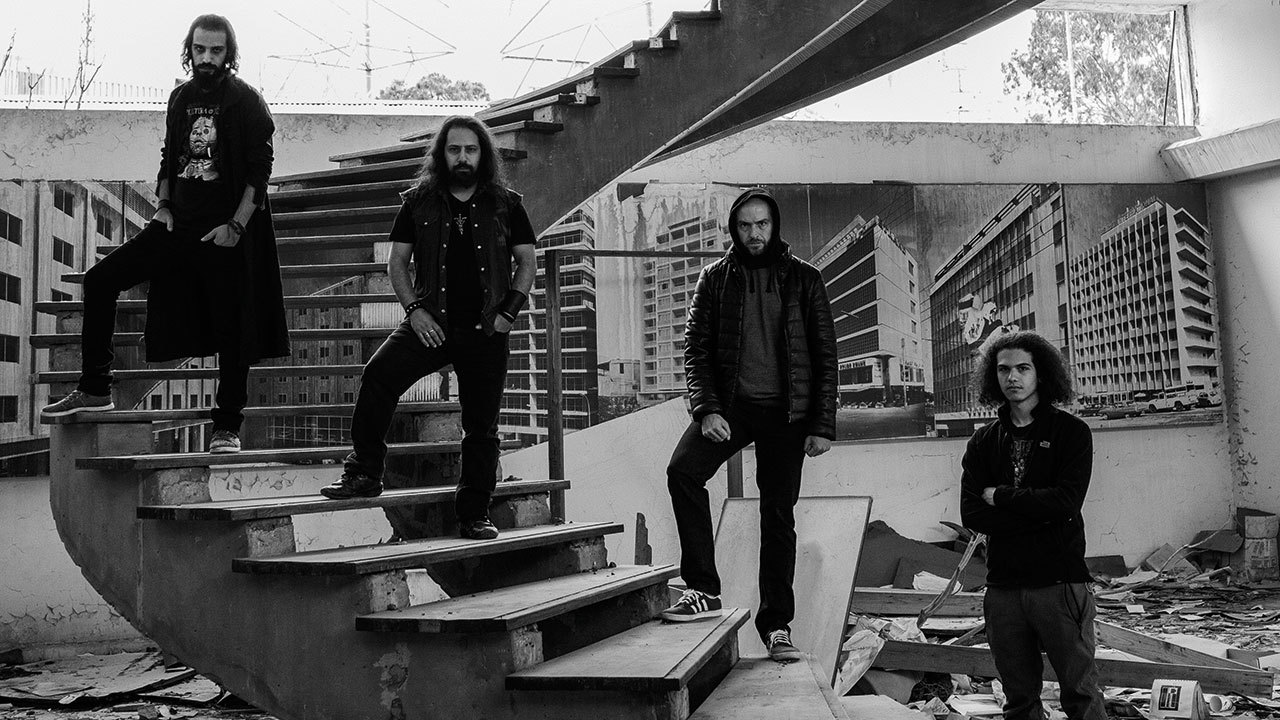
It’s March 22, the day of our interview with Bassem Deaibess, frontman of Lebanon’s premier socio-political thrashers Blaakyum. Today he was due to attend an event at The Palace Of Westminster, but it was cancelled following the tragic attack on Westminster Bridge that claimed the lives of six and injured 50. Having grown up in a war-torn nation, it was a travesty all too familiar to the articulate screamer. “You feel like it’s followed you,” he sighs.
For Blaakyum, these are issues ingrained in the DNA of their music – riotous, groove-oriented thrash they’ve been playing since the mid-90s, that carries with it a deadly warning of the horrors of war and oppression.
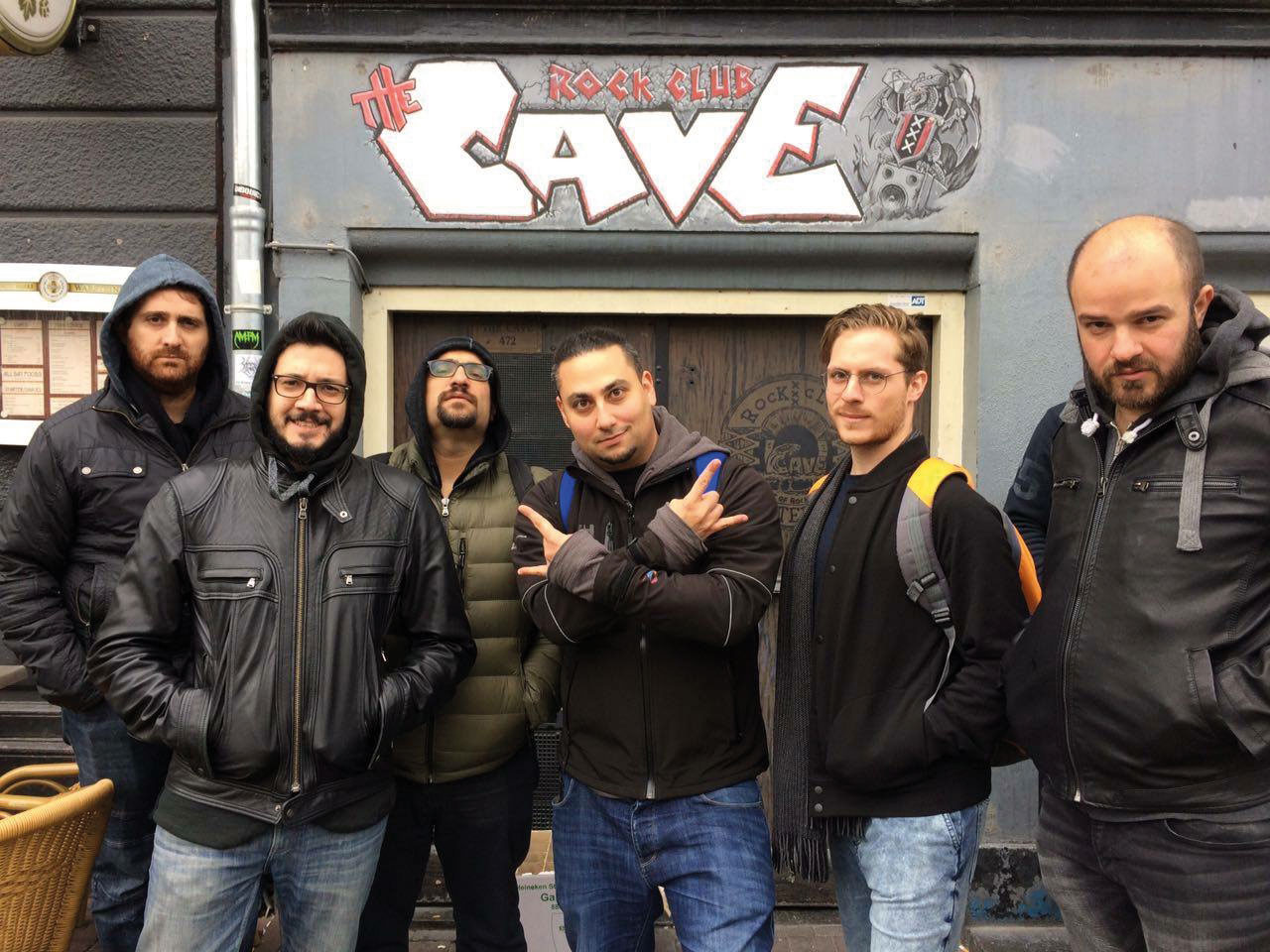
“When I’m performing, I’m letting all my anger and frustration out,” Bassem emphasises, exasperated. “Living in a shithole, in a corrupt, fucked-up region ruled by warlords and religious bigots, all the foreign intervention and all the chaos over the last 20 years – we are angry.”
Such anger is justified, but doesn’t paint a full picture of Lebanon, a multicultural jewel of the Middle East tarnished by violence. Nestled between Syria and Israel, with a Mediterranean coastline to the West, it’s within this small republic that Western ideals meet orthodox Islam and Christianity head on, its capital city Beirut boasting a thriving arts culture even as extremist paramilitary organisation Hezbollah presents just one threat in a society blighted by political corruption. It’s a potent mix – the most liberal nation in the region nevertheless under the near-constant threat of chaos. It proves fertile, yet shaky ground, for metal.
“We try to stay positive,” asserts Elia Mssawir, a Lebanese promoter/band manager, who knows all too well the struggles of maintaining a scene in a country whose population is for the most part utterly opposed to metal’s transgressions. “Despite the abundance of arts, nightlife and events, Lebanon is a tense, nervous country. The mentality of our generation of metalheads was built on struggle and negativity – writing music or lyrics is the easiest thing for us.”
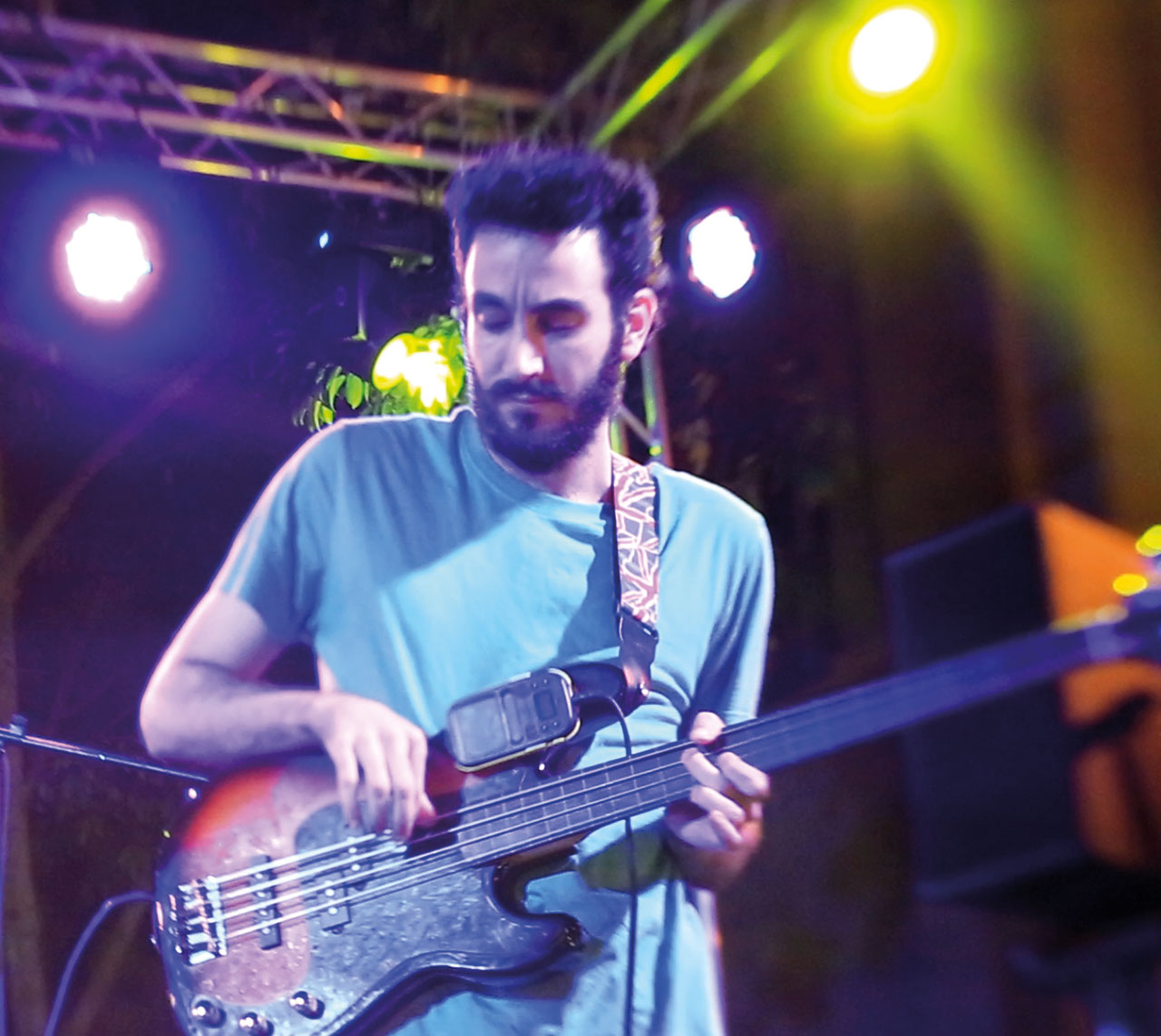
Playing shows, recording albums and avoiding government crackdowns is less easy, despite metal always being accessible in the country, a healthy scene hitting peak popularity in the 90s.
“It started to thrive when people discovered bands like Metallica and Slayer,” remembers John Bakhos, lead guitarist of prog-metallers Anuryzm. “Soon after, there was a surge of black and brutal death metal followers almost everywhere. Bands would pop up left, right and centre, but the bands that I remember mostly from my time there have all disbanded.”
Sign up below to get the latest from Metal Hammer, plus exclusive special offers, direct to your inbox!
This was sadly true of many bands, and free thinkers – for John and his family, living amid the constant threat of war was too much, and they chose to abandon their home altogether.
“I was fortunate enough to only see snippets of the Lebanese civil war growing up,” he remembers. “My family had the foresight to leave before shit really hit the fan. Every year we’d fly home to visit family and things would get chaotic. I remember spending nights in a shelter, watching a tank skirmish on the mountainside. Once we even had to escape by boat to Cyprus as the fighting drew closer.”
The thriving 90s scene began to attract unwanted attention – the same old prejudices we’re all used to as metalheads, just with added threat. “As soon as you start looking like a metalhead, you start encountering all kinds of discrimination,” attests Patrick Saad, scene veteran and admin of lebmetal.com, one of Lebanon’s few online metal publications. “It could go anywhere from being dubbed as Satanists, druggies or simply washed-up losers.”
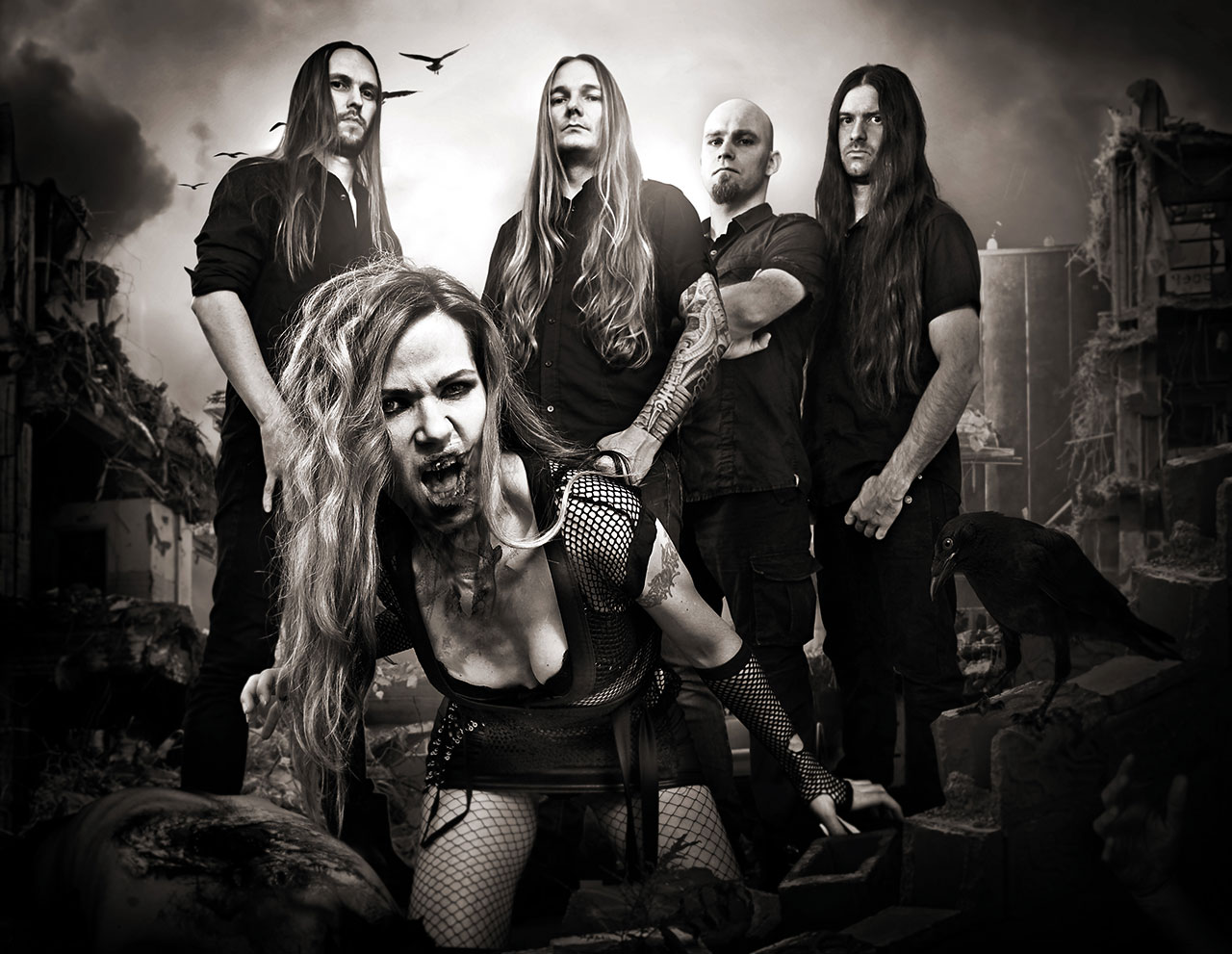
Such prejudice, combined with a total lack of adequate equipment or facilities, often leading to bands secretly practising in abandoned buildings, explains why it took Blaakyum 17 years to release their debut album.
“From ’95 to ’99 we had to hide as metalheads, although we did record our debut single in a studio within a Hezbollah stronghold,” Bassem recalls casually. “We kept it secret; sometimes we had to rush to hide the beers,” he laughs. “Whenever the government needed to do something to distract the people, they’d hunt down the devil worshippers.”
Bassem became a target, incarcerated twice for his heavy metal sins. “It makes for a comic story,” he sighs. “They ask you probably the most ridiculous questions you’ll ever hear, and in the end you sign a paper pledging that you’re not going to worship Satan. Some of the questions were: ‘What you do when you see a black cat?’, ‘Why do you wear black?’, ‘Why do you headbang?’, ‘What effect does it have on your spirituality?’ It is ironic that Bassem is a reformed Christian, citing “education” for his loss of faith. “I believe in Ronnie James Dio!” he laughs heartily.
Blaakyum’s manager, Dr Lina Khatib, has her own fair share of heavy metal war stories. Now a Middle Eastern policy advisor to the UK government, back in the 90s she was the keyboardist in grunge metal act Paranoid and presenter of Lebanon’s only metal radio show.
“I presented The Radio-Unfriendly Show between 1996-1998,” she recounts. “Heavy metal was banned and this was a government station, but Lebanon was still recovering from civil war; the station was a mess without managerial oversight – no one figured out that I was playing metal! You couldn’t buy metal in the shops, so I decided to ask listeners for whatever CDs or tapes they had. They came in droves, and the show became a hangout for metal fans. I also went to Syria to buy bootleg cassettes as metal wasn’t banned there. I would hide them in the taxi; the driver would give small bribes to the Syrian and Lebanese checkpoints in order not to search the car. Today things are different – the internet has had a huge, positive impact.”
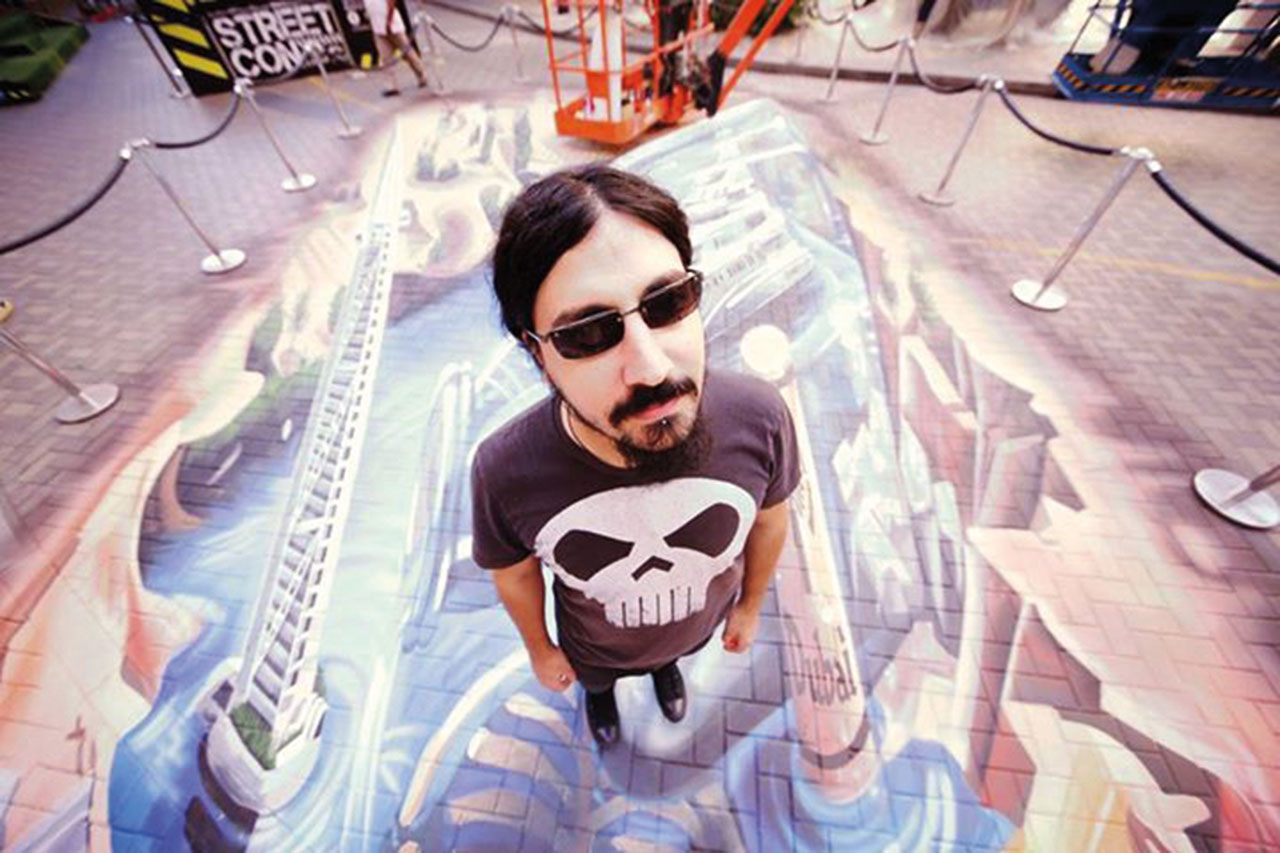
The scene has also prospered through other means. The Bach Institute Of Music, a school in the town of Antelias, just north of Beirut, has become a vital hub for musicians of all kinds. For Jessy Bou Malhab, talented violinist and the institute’s founder, the support they provide plays a vital societal role.
“Metal has always been involved in modern societies, among the people who reject being silenced – it’s a scream against everything wrong. We offer to help with managing, organising and sponsoring bands and events, also providing practice space. We will continue to do our best to make the scene thrive, hoping metal will forever make a difference in people’s lives.”
With the hard work of dedicated individuals, the scene persists. Its biggest show in years, Beirut Metal Fest, headlined by Dutch death thrashers Legion Of The Damned, took place at the end of April. It was a true indication of the progress that dedicated individuals like Elia Mssawir, who organised it, can make happen.
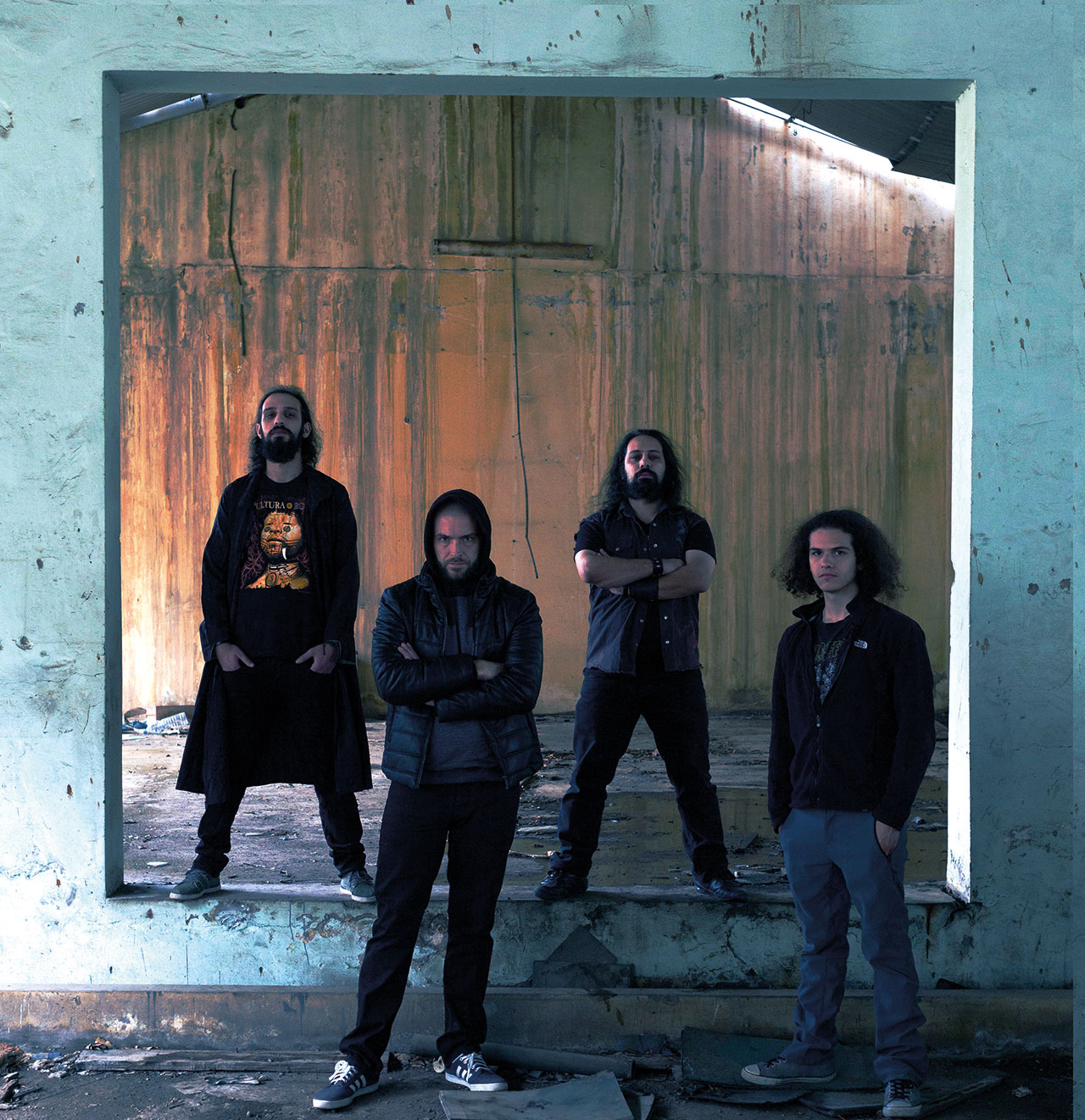
“Beirut Metal Fest was the first proper metal festival in Lebanon in five years,” Elia beams. “The scene has been quiet for some time, and reviving it has had its challenges. Today, as you walk the streets of Beirut, you will see posters for the fest; you can hear our ads on commercial radio; you go online, we’re everywhere, in your face! This is a unique thing that hasn’t been visible in Lebanon in years. We’re very excited!”
With the scene strengthening at home and bands like Blaakyum finally seeing years of hard work pay off by getting international recognition – they’re playing Bloodstock in August – there is a future for Lebanese metal.
“It’s exciting times for us; it’s a bit overwhelming,” Bassem enthuses, rapidly sobering as he considers his journey. “After all this time, it’s not that we lost hope, but you get used to the pain. To see that things are getting better, when you see the reaction of the people… we believe that our nationality is metal rather than Lebanese. We performed at Wacken, and at Tuska in Finland, and each time, we felt like we belonged.”
For those of us for who take freedom of expression for granted, the struggles of Blaakyum and their countrymen act as a sobering reminder that there are countless people around the world who still risk their lives to be who they want to be.
“I fear for my brothers and sisters, especially the metalheads, the atheists, the liberals – those who don’t conform to the regional stereotype of being an Arab, being Middle Eastern,” Bassem laments. “I hope we can change things in our lifetime. But the only thing I can be sure of is that the only reason why many of us held fast was the music we listened to. It gave us hope. I hope we can do that for the next generation.”
Blaakyum play Bloodstock on Sunday, August 13. For info on fests, see beirutmetalfest.com
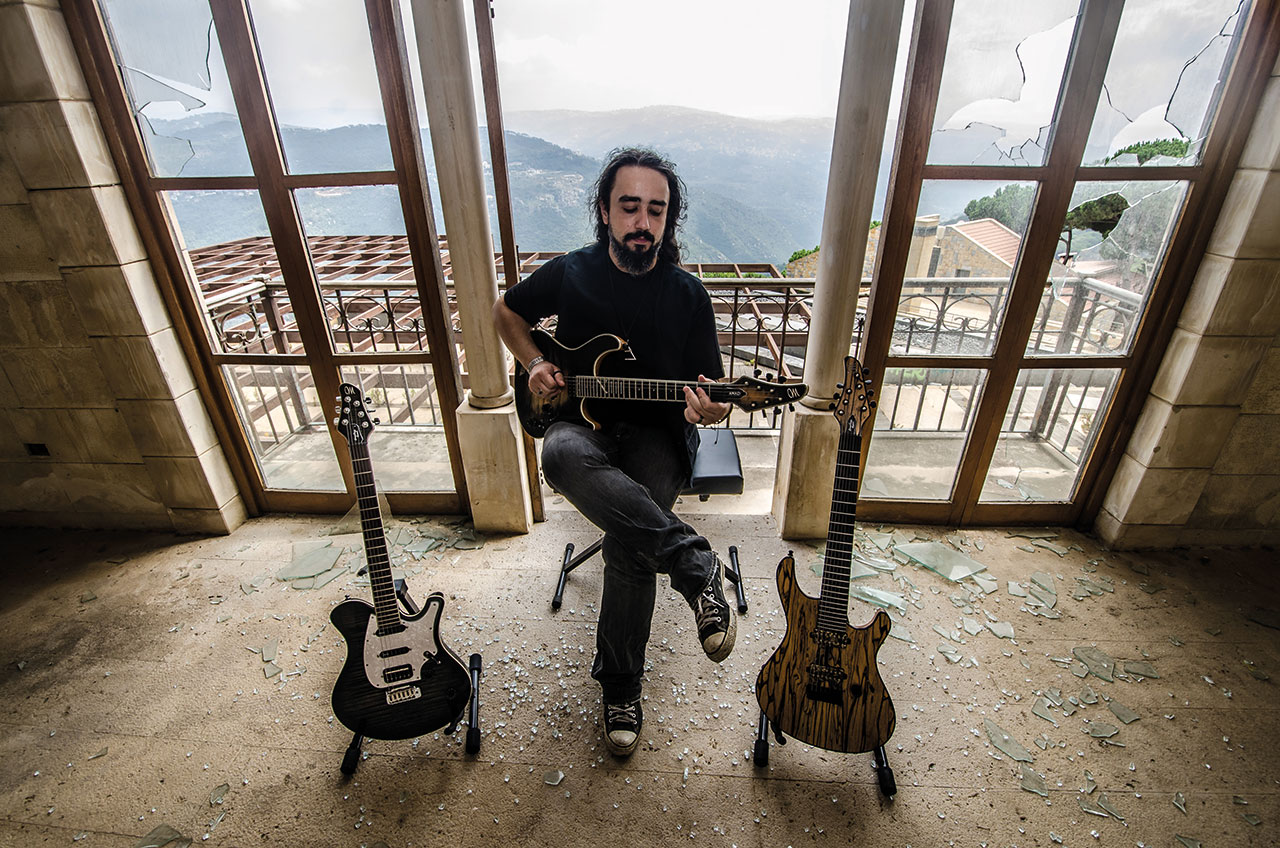
Sounds Of The Underground
Your guide to the Lebanese metal scene
BLAAKYUM
Standard-bearers of the Lebanese scene, Blaakyum’s visceral blend of thrashing pace and punching grooves complements the vengeful catharsis in their music – a product of surviving 20 years of struggle and oppression. Most bands can only imagine the war and chaos in their lyrics – these guys have lived it.
Listen to: Freedom Denied
ANURYZM
What started as a college band in 2003 took on various incarnations as founding member John Bakhos travelled the world, leaving Lebanon for Turkey and Canada, before settling in the United Arab Emirates. Their power prog nods toward metal’s past histrionics while taking their high concept towards an emboldened future.
Listen to: Humanoid ** **
OSTURA
A compelling mix of classically tinged power and progressive instrumentation, Ostura delve deep into the realms of fantasy to recount heroic warrior tales on debut album Ashes Of The Reborn. It’s a product of a 15-musician-strong collaboration, which includes three lead vocalists, from the guttural to the soaring.
Listen to: A Warrior’s Tale
AMADEUS AWAD
A powerful prog guitarist, Amadeus Awad takes inspiration for his elaborate epics from the likes of Ayreon mastermind Arjen Lucassen. The first Middle Eastern rock artist to collaborate with notable Western bands, he has not only worked with Lucassen, but Devin Townsend’s regular vocal counterpart Anneke Van Giersbergen and Porcupine Tree’s Gavin Harrison, to name but a few.
Listen to: Death Is Just A Feeling
KAOTEON
Delivering hammer-blow brutality, Kaoteon are Lebanon’s answer to Behemoth: bombastic, devastatingly powerful and brazen in their battery. Their forthcoming second album, Damnatio Memoriae, features Marduk drummer Fredrik Widigs and Obscura bassist Linus Klausenitzer.
Listen to: The Will
All hope is strong: How heavy metal is helping to unite communities in Africa
